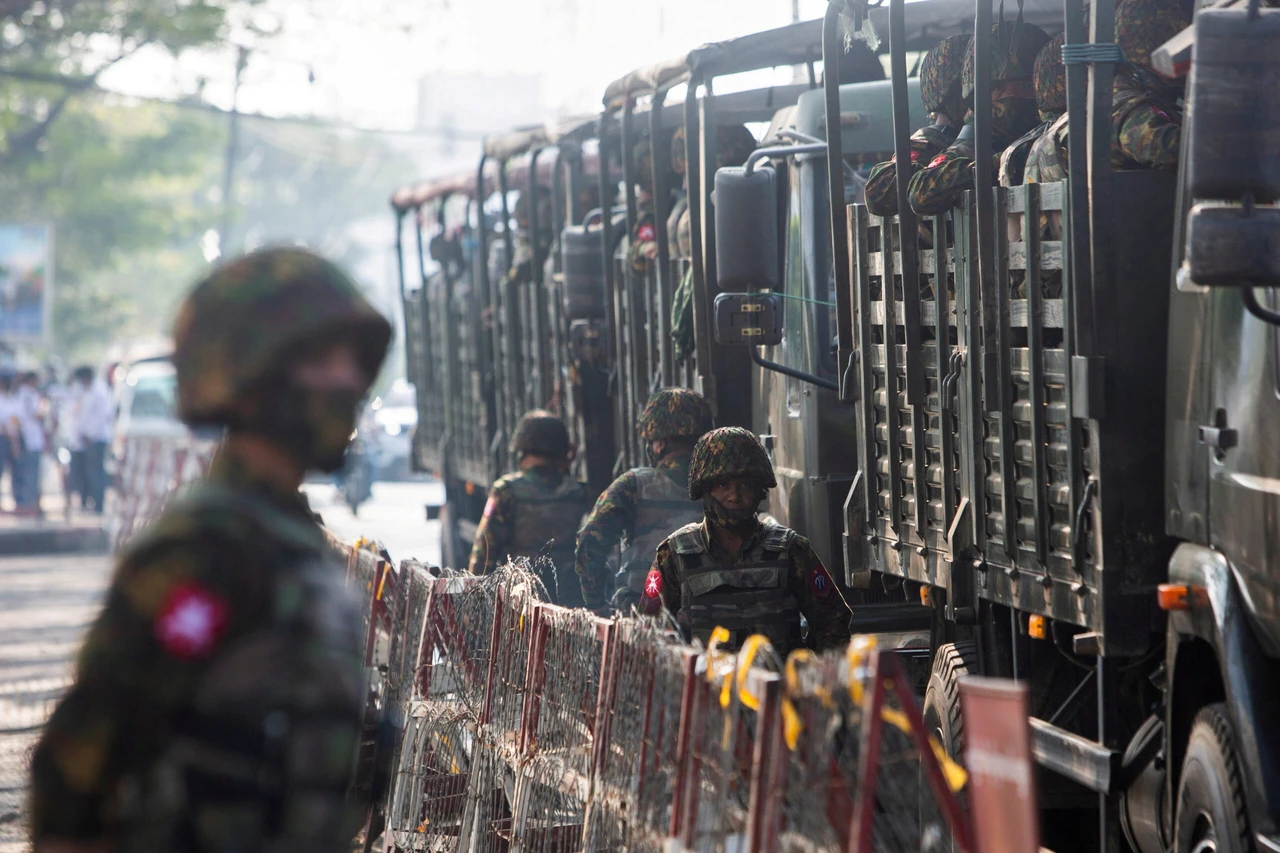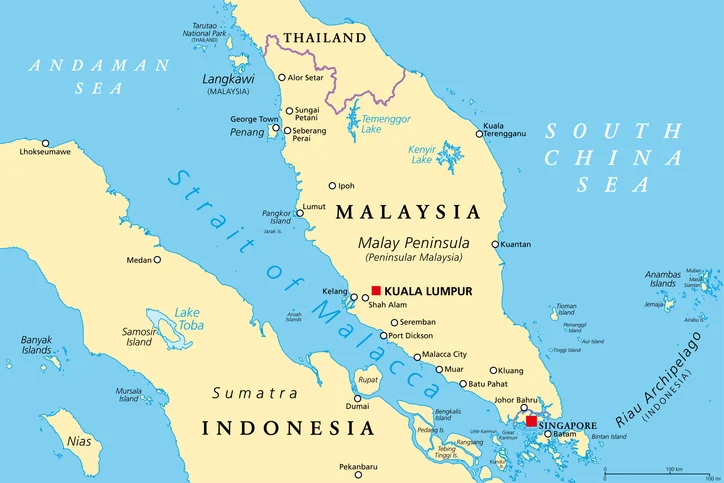Myanmar civil war jeopardizes key China-Myanmar trade corridor
 Soldiers stand next to military vehicles as people gather to protest against the military coup, in Yangon, Myanmar, February 15, 2021. (Reuters/Stringer)
Soldiers stand next to military vehicles as people gather to protest against the military coup, in Yangon, Myanmar, February 15, 2021. (Reuters/Stringer)
Myanmar’s ongoing civil war is obstructing construction efforts on the China-Myanmar Economic Corridor, a key trade route aimed at securing China’s energy supply and enhancing its influence in Southeast Asia.
According to reports from the BBC, the unrest has jeopardized Beijing’s multibillion-dollar investment in the region, potentially stalling critical economic projects.
Strategic corridor faces disruption
The China-Myanmar Economic Corridor was designed to connect China to global markets through Myanmar’s access to the Indian Ocean, benefitting both nations.
For Myanmar, the project promised economic uplift, while China sought to bolster its energy security by reducing reliance on maritime shipping routes, particularly the Malacca Strait, a key chokepoint for Chinese trade.
However, since Myanmar’s military coup in 2021, the ruling junta has lost control over large parts of the country.
This has hindered construction efforts on the trade route and disrupted China’s plans to import oil and gas overland from Myanmar.

China’s dual approach to Myanmar conflict
China’s strategy in Myanmar has involved supporting both sides of the conflict, according to analysts. Lucas Myers, writing for War on the Rocks, described Beijing’s approach as a “hedging strategy,” designed to ensure Chinese interests are protected no matter which faction prevails.
Despite this, escalating violence and cyber scams targeting Chinese nationals have created diplomatic and logistical challenges for Beijing.
Fulcrum, a research site focused on Southeast Asia, argued that China’s vested interest in Myanmar’s stability could make it a potential mediator in the conflict.
However, concerns remain over whether China’s involvement will benefit Myanmar’s broader interests or merely serve Beijing’s economic ambitions.

Energy supply concerns drive China’s efforts
The China-Myanmar Economic Corridor is a crucial part of Beijing’s broader strategy to secure energy supply chains.
With China’s dependency on foreign oil expected to reach 80% by 2030, diversifying routes is essential to reduce the risks posed by reliance on maritime chokepoints like the Malacca Strait.
China’s ability to import oil and gas overland via Myanmar would help mitigate these risks, creating a more secure and interconnected market, according to analysts from Chatham House and the Italian Institute for International Political Studies.



